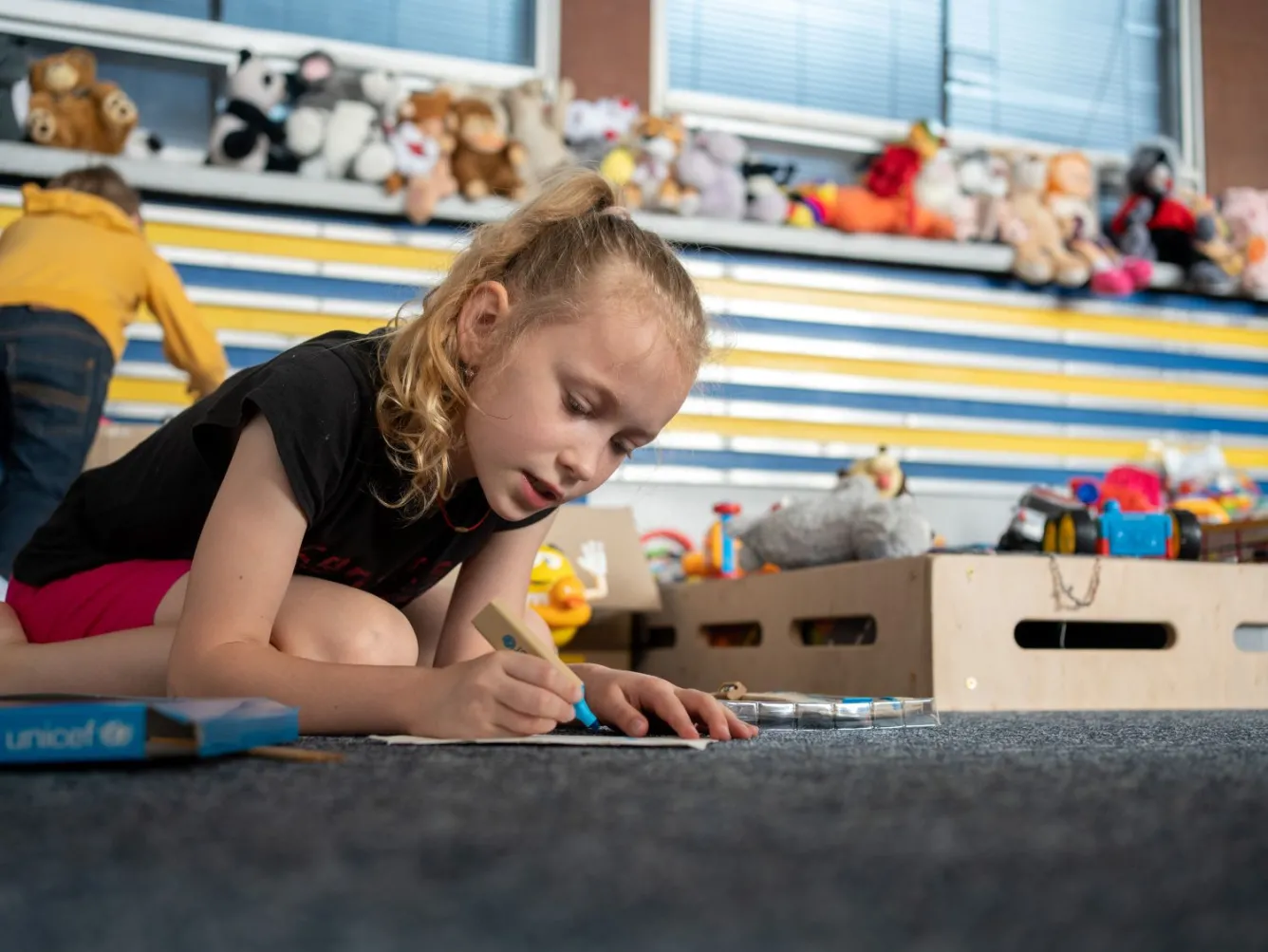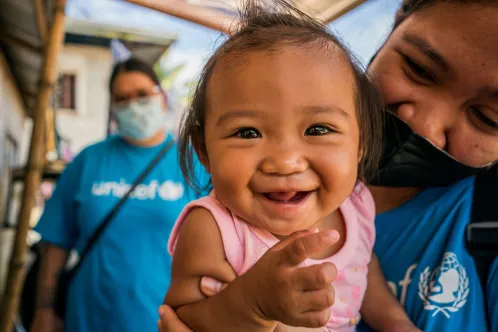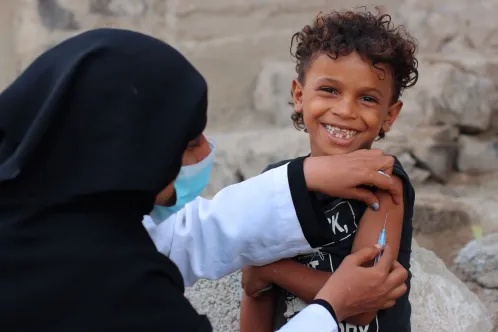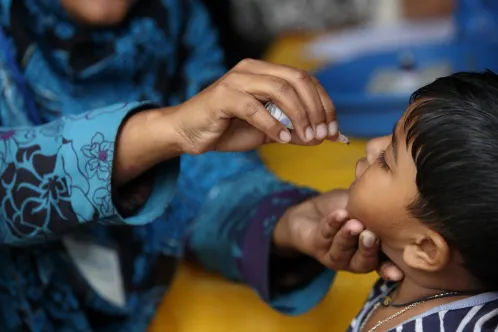Protecting children’s mental health
Global crises and the growing threat of climate change are taking a heavy toll on children’s mental health. From being forced to flee their homes to enduring staggering violence to being cut off from essential services, children around the world are experiencing severe psychological and social consequences that threaten their development and future.
UNICEF is working to ensure children around the world get the mental health and psychosocial support they need to meet their social and emotional needs.
The importance of mental health
Mental health is fundamental to our ability to think, feel, learn, work, build meaningful relationships and contribute to the world. It is an important part and foundation of everyone’s overall health and well-being.
Globally, at least one in seven 10-19-year-olds experiences a mental disorder. Depression, anxiety and behavioural disorders are among the leading causes of illness and disability among adolescents.
Children exposed to conflict especially face severe emotional stress that can result in lifelong mental health and psychosocial issues.
Failure to address mental health and psychosocial issues stalls a child’s development and bars them from opportunities to participate meaningfully in society. All too often, children with mental health conditions suffer stigma, discrimination – even human rights violations. They may be excluded from their communities or exposed to further violence, including in places where they should be safe.
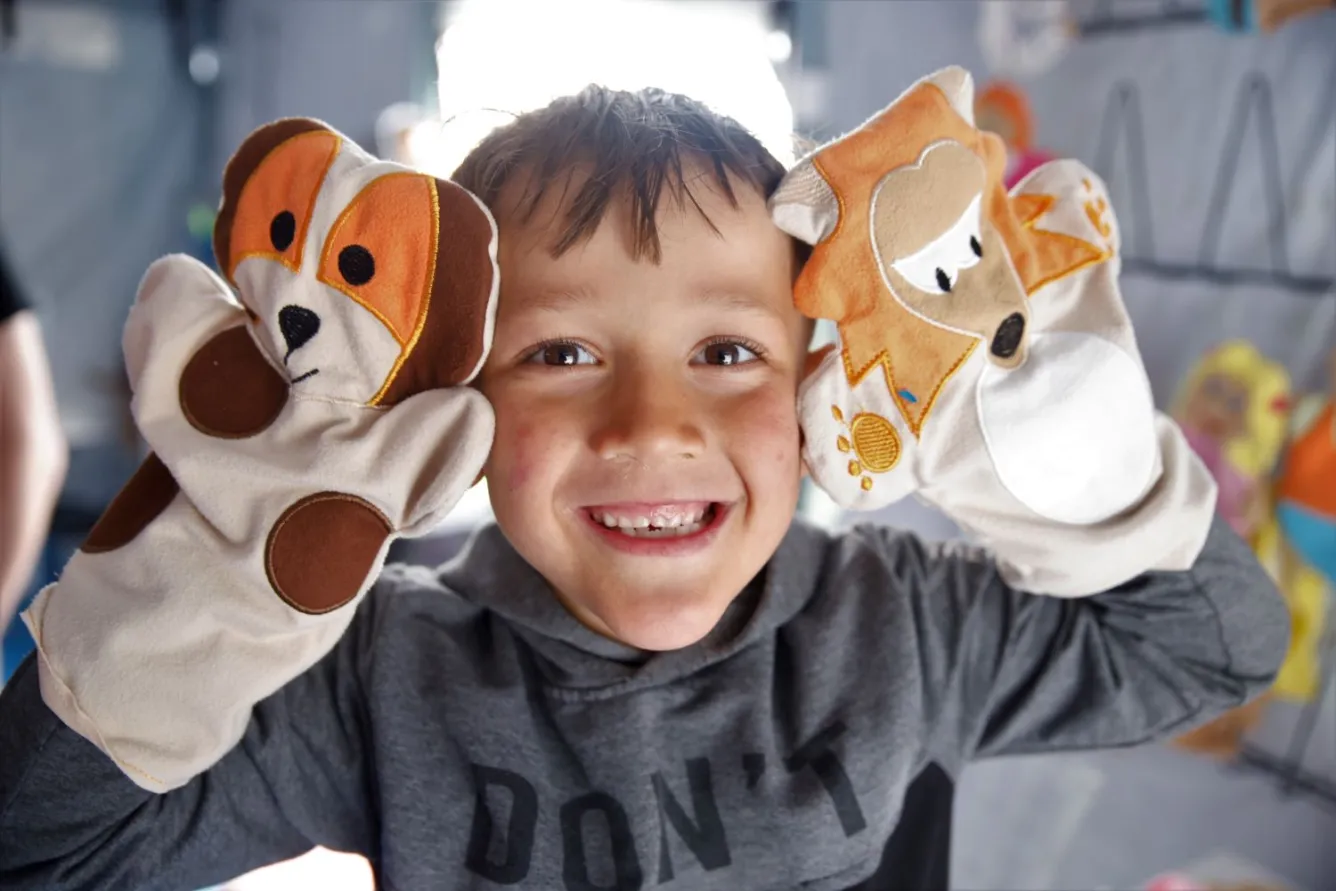
UNICEF’s work to support children’s mental health
Every child has the right to grow up in loving, nurturing and safe environments, with supportive relationships and access to quality mental health and psychosocial support.
UNICEF is working to ensure children and adolescents, wherever they are, have access to environments that create conditions for their optimal development. We offer mental health and psychosocial support to children, adolescents, caregivers, families and the wider community through various interventions that meet their complex needs.
We work tirelessly with our partners around the world to:
- Set up safe spaces that provide regular, structured activities to help children and adolescents develop skills to deal with crisis, solve problems, regulate emotions, and form and maintain relationships.
- Strengthen family and community support networks, facilitating the inclusion and participation of families in communal activities and holding peer support groups for mothers and fathers.
- Help community organizations develop their capacity to support child and family well-being through activities like stigma-reduction campaigns and programs that facilitate mental health care.
Spilno spots in Ukraine
Since the beginning of the war in Ukraine, UNICEF and partners have set up more than 150 Spilno Spots throughout Ukraine. These are spaces where children can access essential healthcare and mental health services. Using play activities, Spilno Spots provide a comfortable, nurturing space where children can go to just be kids again for a while, away from the pressures of growing up in a war zone.
